John Prine, a name synonymous with poignant storytelling and deceptively simple melodies, penned his first songs as a mere teenager. Even in those nascent compositions like “Sour Grapes” and “The Frying Pan,” the hallmarks of his genius – a blend of humor and heartbreak reminiscent of his idols Hank Williams and Roger Miller – were already evident. His life experiences, from serving in the Vietnam War to his days as a mailman, became rich fodder for his songwriting. He crafted narratives about the everyday lives of working folks, the lonely, the downtrodden, and the lost. His style, often compared to John Steinbeck’s, possessed a unique simplicity that many imitated but none could truly replicate. This exploration delves into 25 essential John Prine Hits that showcase his unparalleled talent and lasting impact on music.
“Angel From Montgomery” (1971)
Image Credit: Denise Sofranko/Michael Ochs Archives/Getty Images
Perhaps the most widely recognized of John Prine hits, “Angel From Montgomery” paints an unforgettable portrait of a woman grappling with the weight of middle age and lost dreams. The song’s seemingly simple country-rock arrangement belies the lyrical depth Prine masterfully weaves in, focusing on mundane yet evocative details – flies around a kitchen sink, a faded rodeo poster sparking youthful memories. Its raw depiction of marital stagnation and midlife ennui resonated deeply, breaking ground in its honest portrayal of female experience. “Angel From Montgomery” transcended genres, becoming a country standard, most famously interpreted by Bonnie Raitt. Her soulful, slowed-down rendition amplified the song’s undercurrent of longing and unspoken desires, a testament to the song’s enduring power as one of John Prine’s most impactful hits.
“Illegal Smile” (1971)
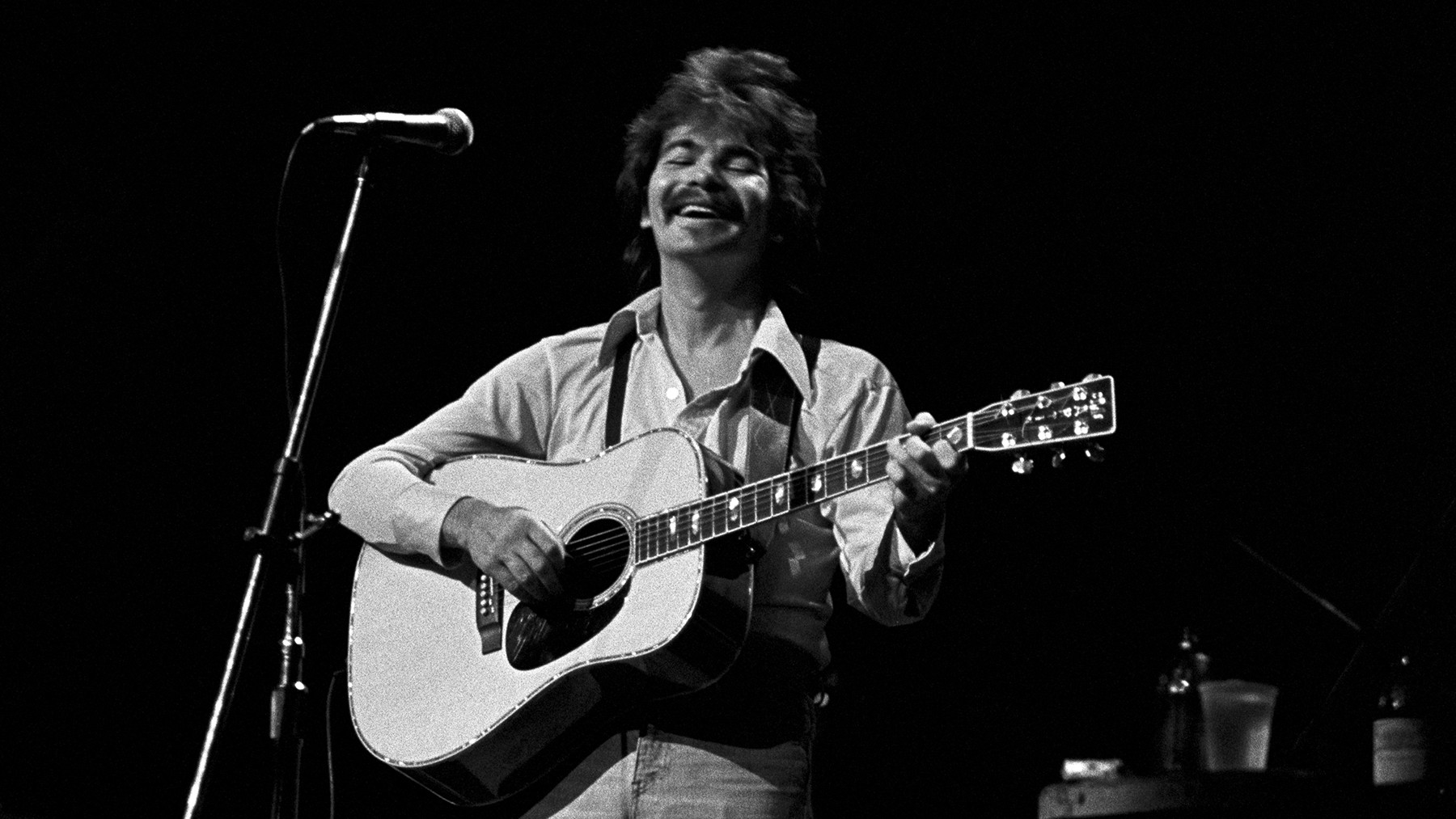 John Prine performing live in Atlanta, Georgia in 1975, capturing the playful spirit of "Illegal Smile".
John Prine performing live in Atlanta, Georgia in 1975, capturing the playful spirit of "Illegal Smile".
Image Credit: Tom Hill/Getty Images
Opening his self-titled debut album in 1971, “Illegal Smile” quickly became an anthem, particularly embraced by cannabis enthusiasts, despite Prine’s playful denials about its intended meaning. While lyrics hinting at “the key to escape reality” and brushes with the law might suggest otherwise, it’s Prine’s distinctive rhythmic delivery that truly intoxicates. He phrases it with a childlike sing-song quality, emphasizing the last two syllables of each line, creating a captivating, almost hypnotic rhythm. The imagery throughout is whimsical and slightly surreal, culminating in ad-libbed rhymes at the song’s close – “Well done/Hot dog bun/My sister’s a nun” – that solidify its childlike wonder and playful charm, making it a unique and memorable John Prine hit.
“Spanish Pipedream” (1971)
Image Credit: Michael Ochs Archives/Getty Images
“Spanish Pipedream,” another gem among John Prine hits, is brimming with sage advice wrapped in a narrative about a soldier and a topless dancer escaping to a simpler life. The lyrics urge listeners to blow up your TV, throw away your paper, go to the country, build you a home – a sentiment that resonates even more powerfully today, even if the dream seems increasingly elusive. As Rolling Stone noted in its 1971 review of Prine’s debut, it’s a “pipe dream,” yet an undeniably enticing one. While Prine himself might not have literally blown up his TV, he did confess to a unique form of protest against its inanity, telling Performing Songwriter about keeping pebbles to throw at the screen during moments of televised foolishness. This song encapsulates Prine’s ability to blend social commentary with whimsical storytelling, cementing its place as a standout John Prine hit.
“Paradise” (1971)
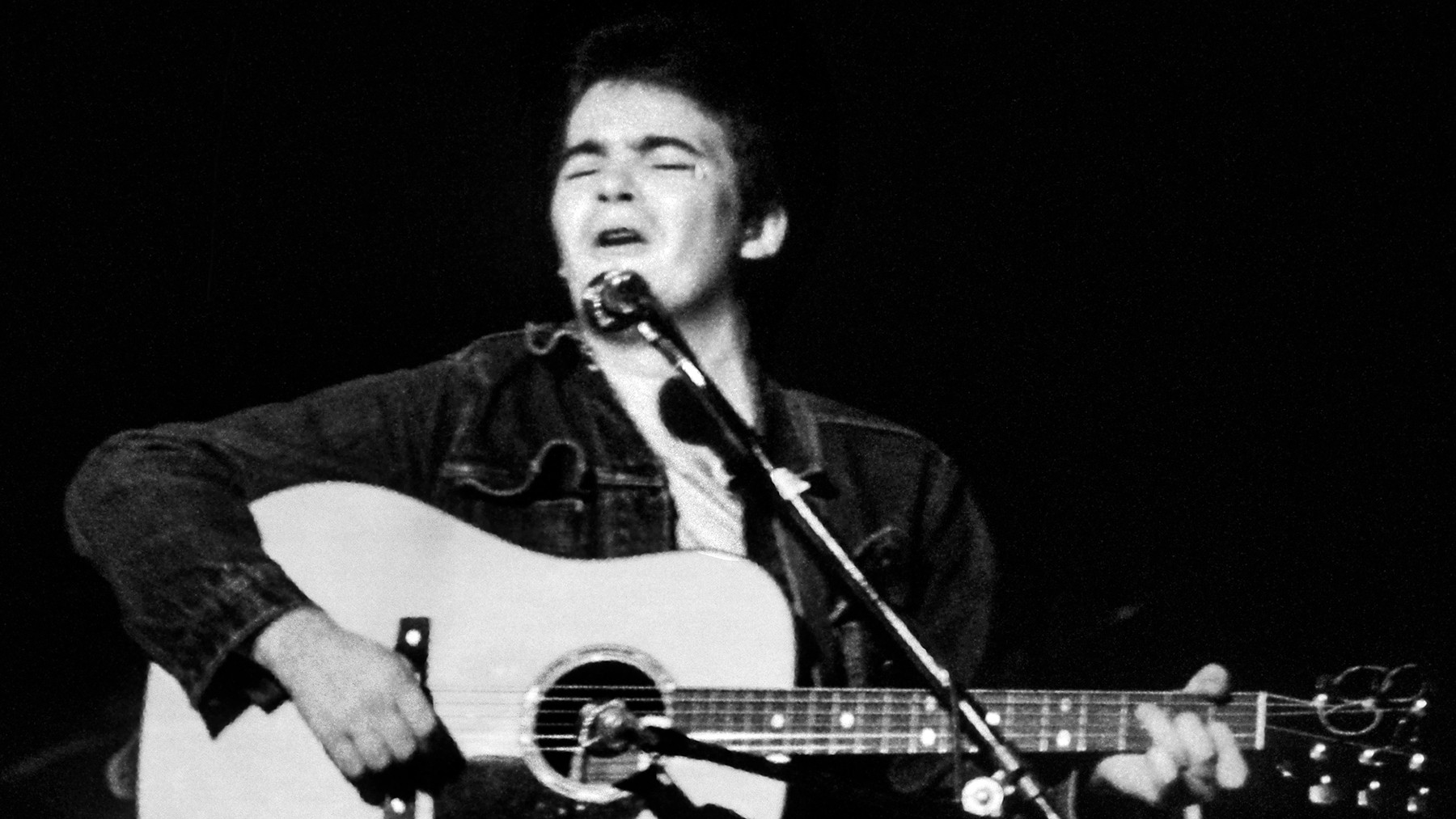 John Prine performing at The Telagi music club in Boulder, Colorado in 1972, a period when "Paradise" was gaining popularity.
John Prine performing at The Telagi music club in Boulder, Colorado in 1972, a period when "Paradise" was gaining popularity.
Image Credit: Ron Pownall/Getty Images
“Paradise,” a deeply sentimental yet unflinchingly honest song, stands as both a nostalgic recollection of home and a stark critique of capitalist exploitation. This poignant John Prine hit is an ode to Muhlenberg County, Kentucky, the small mining town where his parents met. Prine explained that “Peabody Coal and Mining bought up all the land down there, and they tore the whole town down; they strip-mined it,” introducing the song with this context in a 1970 performance. Despite his initial doubts about its accessibility – “I wasn’t even going to record it because I didn’t think anybody would be able to pronounce ‘Muhlenberg,’” – “Paradise” became a beloved standard, covered by icons like the Everly Brothers, John Denver, and Johnny Cash, testament to its powerful message and timeless appeal as one of the defining John Prine hits.
“Sam Stone” (1971)
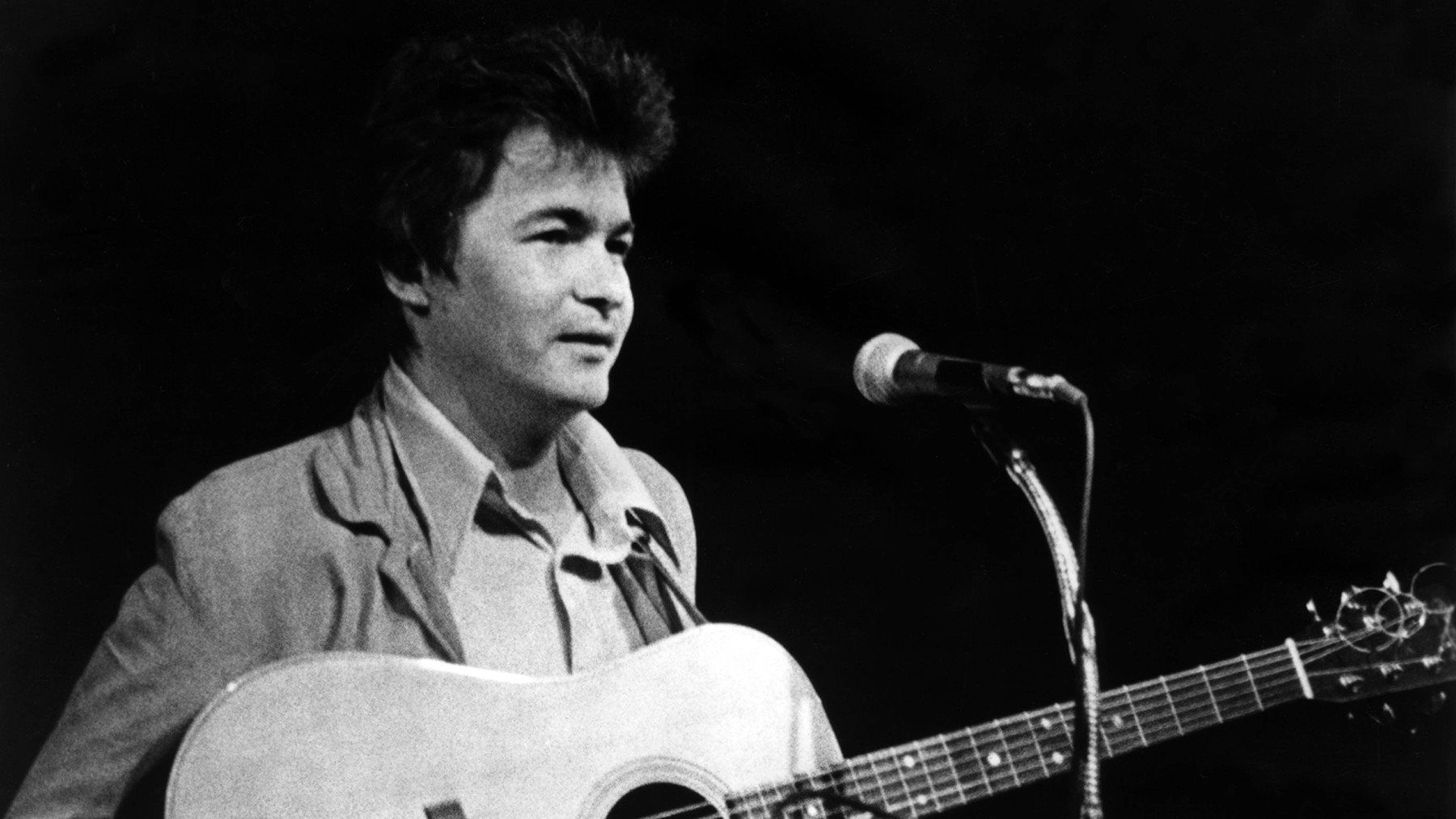 John Prine in a black and white portrait, capturing the somber tone of "Sam Stone".
John Prine in a black and white portrait, capturing the somber tone of "Sam Stone".
Image Credit: Charlie Gillett/Redferns/Getty Images
“Sam Stone,” a heartbreaking narrative of a veteran grappling with heroin addiction, emerged from Prine’s pen shortly after his own return from military service. This raw and emotionally resonant song quickly became one of the most signature John Prine hits, punctuated by devastatingly poignant lines like, “There’s a hole in daddy’s arm where all the money goes/Jesus Chris died for nothin’, I suppose.” Decades later, Prine reflected that this couplet remained his proudest lyrical achievement. “[A] lot of soldiers came home and got hooked on drugs,” he explained. “I was just trying to think of something as hopeless as that. My mind went right to, ‘Jesus Christ died for nothin’, I suppose.’ I said, ‘That’s pretty hopeless.’” “Sam Stone” remains a stark and powerful reminder of the human cost of war and addiction, solidifying its place among essential John Prine hits.
“Hello in There” (1971)
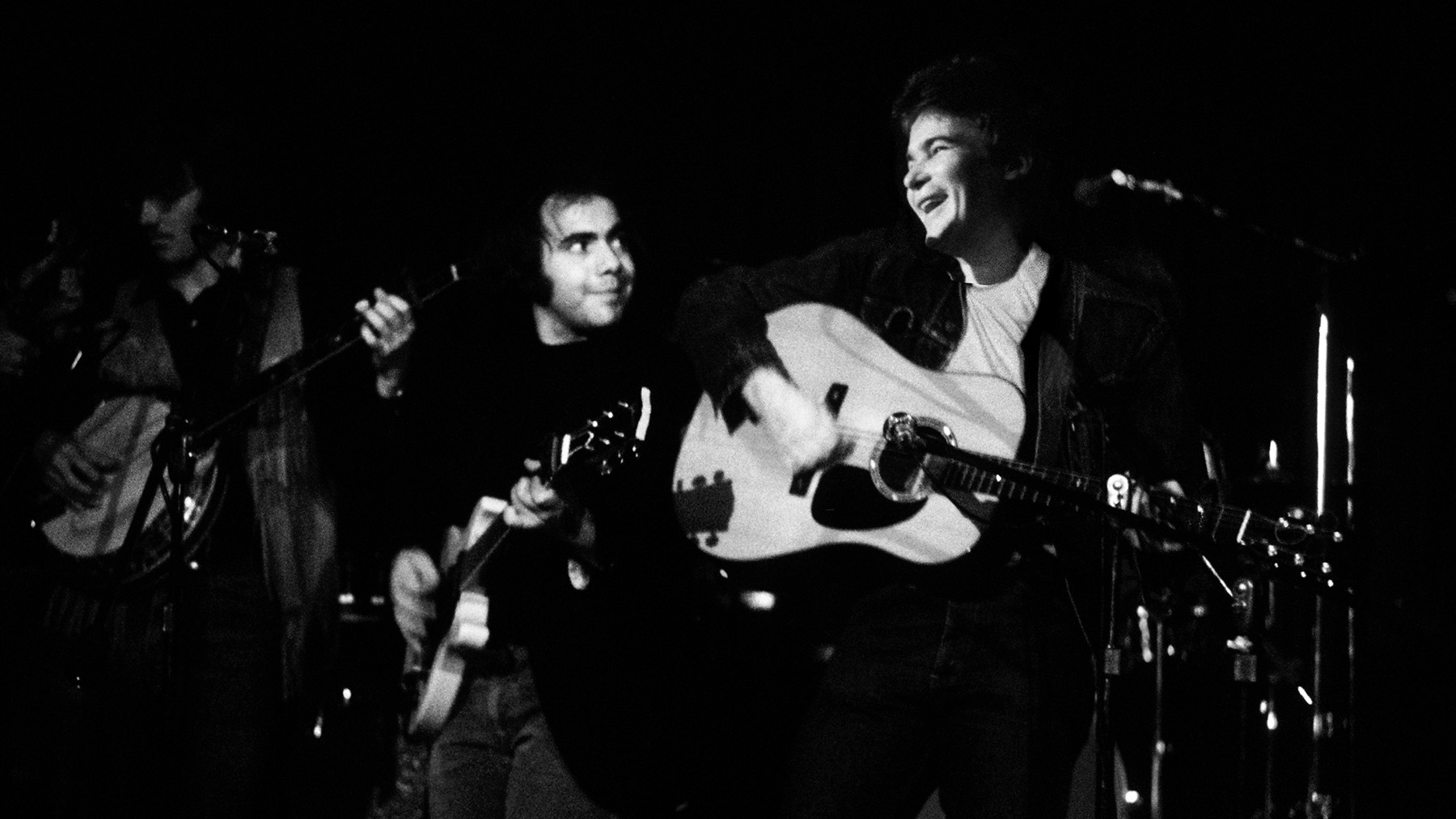 John Prine and Steve Goodman performing together in 1972, showcasing the collaborative spirit of the era and songs like "Hello in There".
John Prine and Steve Goodman performing together in 1972, showcasing the collaborative spirit of the era and songs like "Hello in There".
Image Credit: Ron Pownall/Getty Images
Inspired by the haunting reverb on John Lennon’s vocals in the Beatles’ “Across the Universe,” Prine conceived of “hollering through a hollow log, trying to get through to somebody.” This initial image blossomed into “Hello in There,” a uniquely empathetic song exploring the isolation of an elderly couple. A quintessential John Prine hit, it paints a vivid picture of their lives – their memories of a shared apartment, children grown and gone (or lost, like Davy, “in the Korean War/I still don’t know what for”), and the quiet solitude they navigate. In classic folk tradition, Prine directly addresses the listener, urging connection and compassion: “So if you’re walking down the street sometime/And spot some hollow ancient eyes/Please don’t just pass ’em by and stare/ As if you didn’t care, say, ‘Hello in there, hello.’ ” The song is a powerful call to empathy, a hallmark of John Prine hits.
“Souvenirs” (1972)
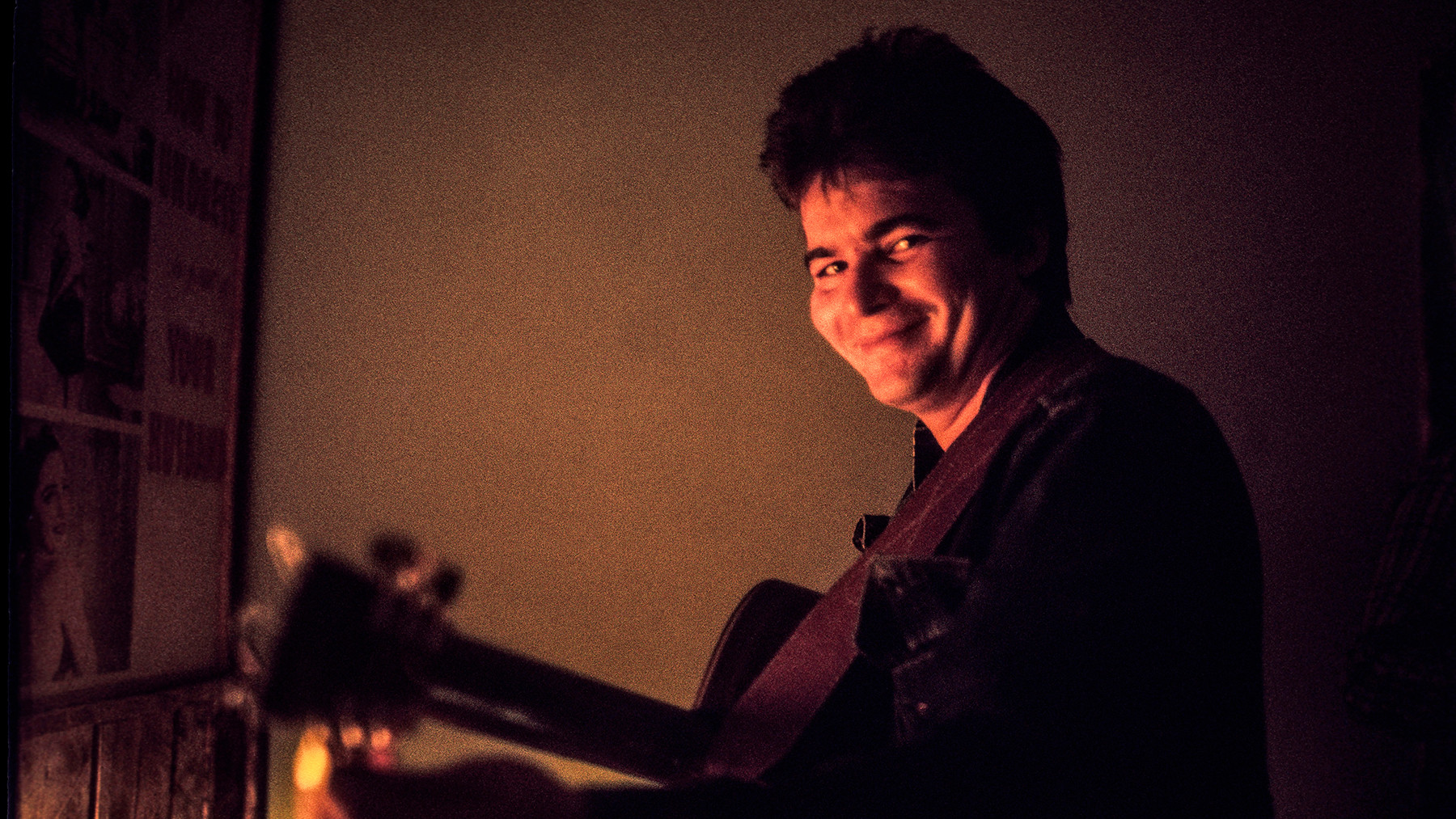 John Prine performing with a guitar, highlighting the acoustic and personal nature of songs like "Souvenirs".
John Prine performing with a guitar, highlighting the acoustic and personal nature of songs like "Souvenirs".
Image Credit: Ron Pownall/Getty Images
“Souvenirs,” a gorgeous meditation on nostalgia, was written by Prine in his ‘65 Chevelle, en route to an early gig in Chicago. Partially inspired by a childhood memory of briefly believing his brother lost at a carnival, the song captures the bittersweet essence of remembrance. “I thought I had come up with a pretty sophisticated melody in my head,” Prine admitted, “I was surprised to find out it had the same three chords that all my other songs have.” Frequently performed with his musical partner Steve Goodman (their live duet on Great Days is considered definitive), Prine dedicated “Souvenirs” to his late friend at every performance for decades. This two-verse tale of a life lived and remembered, complete with Prine’s invented word “boughten,” is sentimentality at its finest and a cherished entry in the collection of John Prine hits.
“Christmas in Prison” (1973)
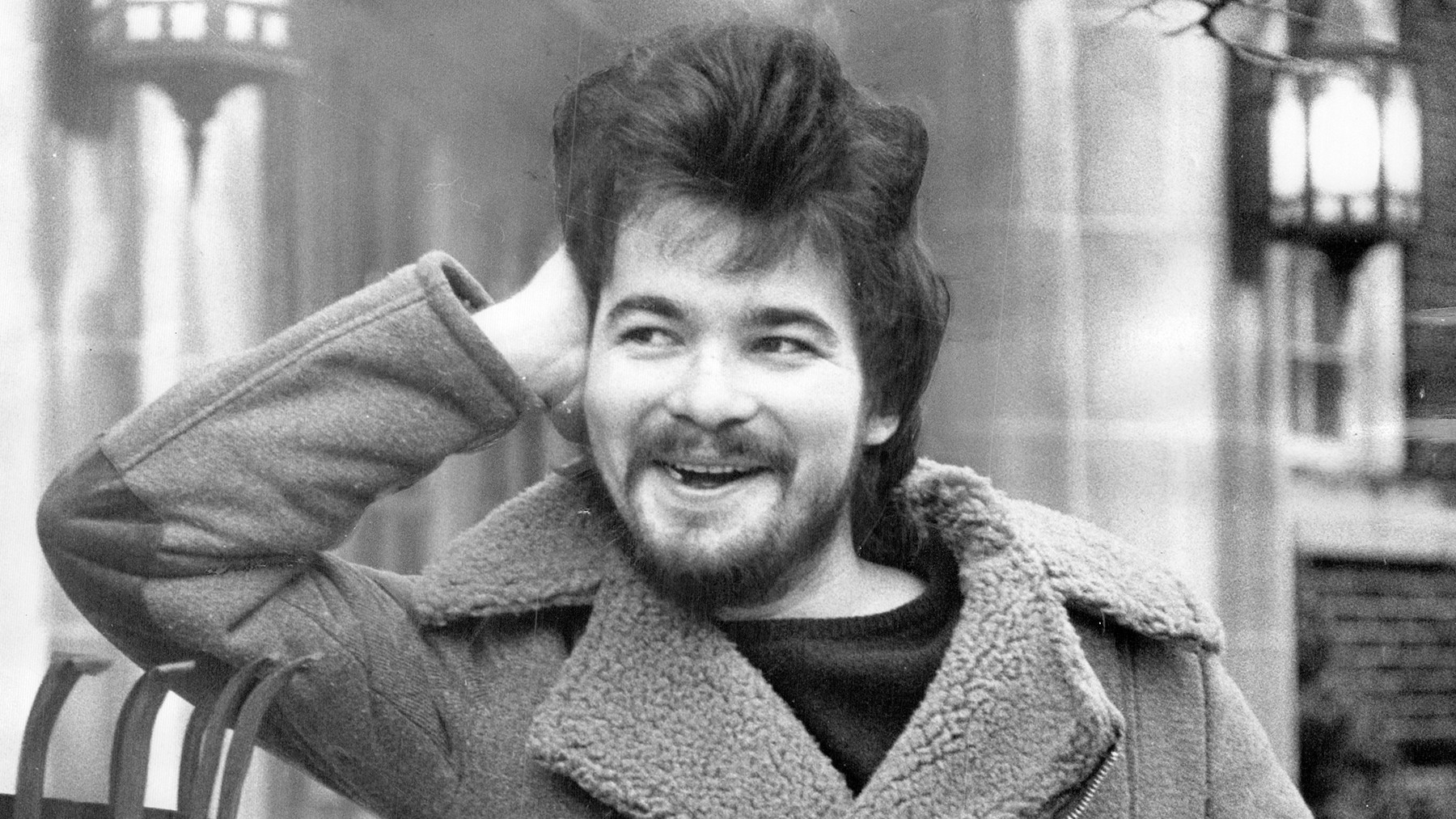 John Prine in a casual portrait, contrasting with the themes of confinement in "Christmas in Prison".
John Prine in a casual portrait, contrasting with the themes of confinement in "Christmas in Prison".
Image Credit: Boris Spremo/Toronto Star/Getty Images
Leave it to Prine to craft both an unconventional Christmas song and an unconventional love song simultaneously. “Christmas in Prison” seems to depict a homesick inmate longing for his lover, though Prine hinted the “prison” might be metaphorical. “It’s about a person being somewhere like a prison, in a situation they don’t want to be in,” he explained. “And wishing they were somewhere else. But I used all the imagery as if it were an actual prison.” This unique John Prine hit pairs a sweet, sentimental waltz melody with lyrics that are both humorous and strikingly evocative. The inmate’s longing is depicted through vivid, unexpected imagery: “She reminds me of a chess game/With someone I admire/Or a picnic in the rain/After a prairie fire.” Prine’s affection for Christmas, even keeping a tree up year-round, adds another layer to this complex and beloved song among John Prine hits.
“Mexican Home” (1973)
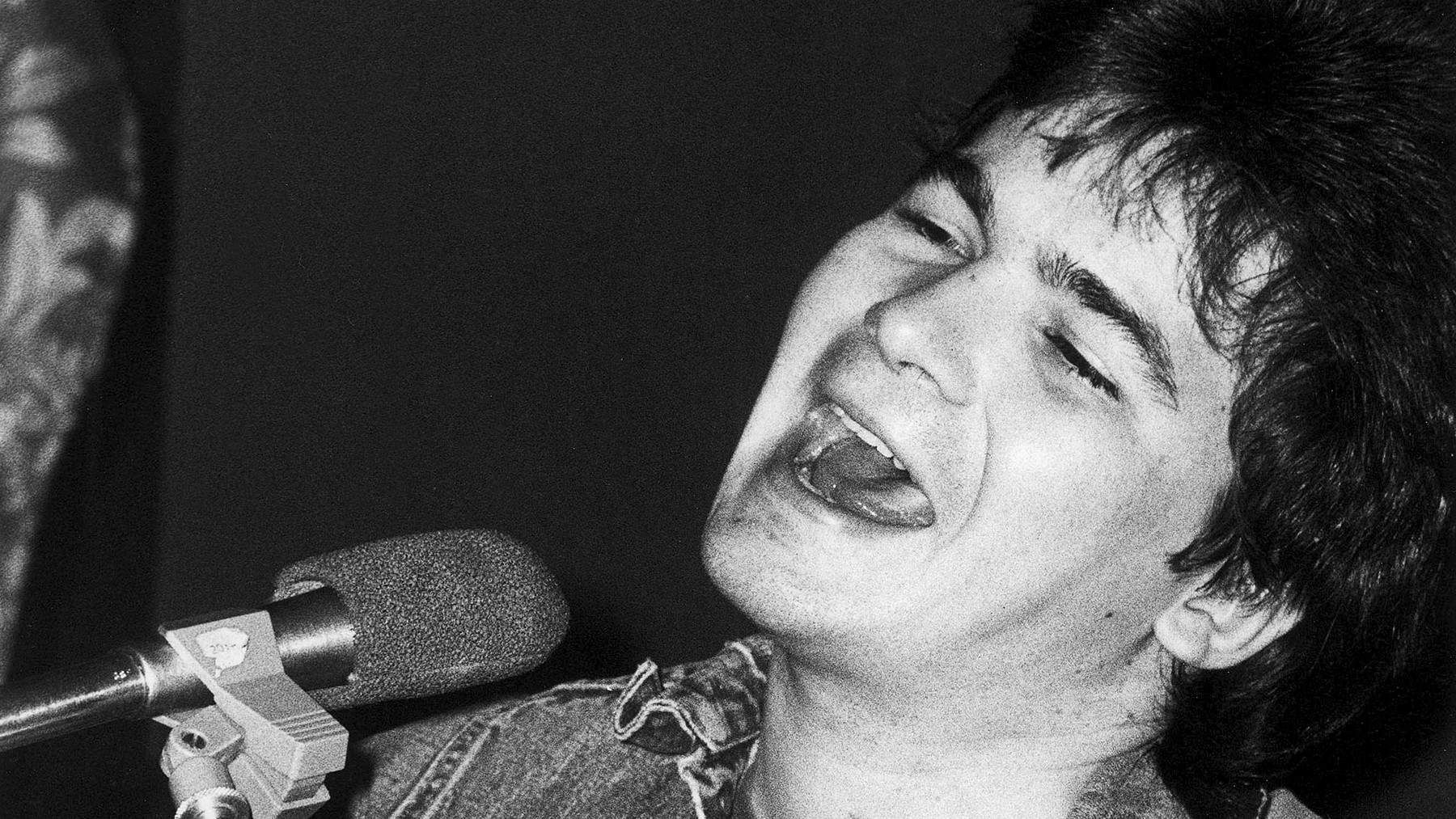 John Prine performing with a harmonica, emphasizing the folk and country influences in his music, relevant to "Mexican Home".
John Prine performing with a harmonica, emphasizing the folk and country influences in his music, relevant to "Mexican Home".
Image Credit: Michael Putland/Getty Images
John Prine’s father, Bill, a factory worker and union president, instilled in his son a love for country music. Prine often wrote with the hope of impressing his father, finally achieving this with “Paradise.” Tragically, Bill Prine passed away from a heart attack shortly before John’s debut album release. “Mexican Home,” a deeply personal John Prine hit, became his way of processing this profound loss. Through evocative verses, Prine captures the helplessness, anxiety, and pain of grief: “The cuckoo clock has died of shock and the windows feel no pane,” he sings, “The air’s as still as the throttle of a funeral train.” Only in the final verse does he explicitly reveal the song’s subject: “My father died on the porch outside on an August afternoon/ I sipped bourbon and cried / With a friend by the light of the moon.” This song showcases Prine’s ability to transform personal tragedy into universally relatable art, a hallmark of John Prine hits.
“Blue Umbrella” (1973)
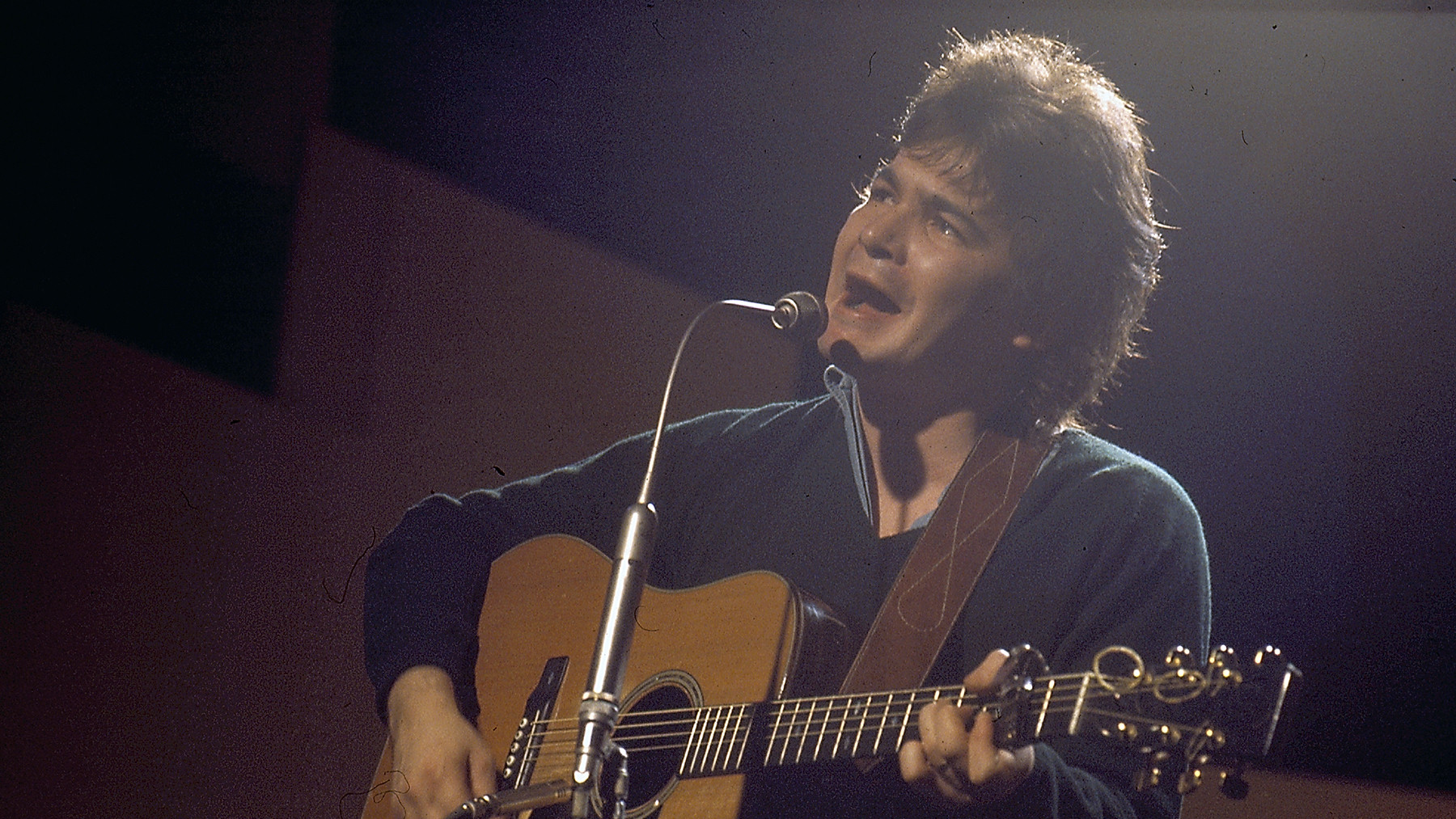 John Prine in a stage performance, possibly during the era of "Blue Umbrella", capturing his youthful energy.
John Prine in a stage performance, possibly during the era of "Blue Umbrella", capturing his youthful energy.
Image Credit: Tony Russell/Redferns/Getty Images
“Blue Umbrella,” a young man’s blues about early heartbreak, is linked to the same relationship that inspired his debut album masterpiece, “Far From Me.” “The first time you get your heart busted, you never forgive,” Prine stated years later, “Especially if you’re a writer.” This song, part of Prine’s early Chicago folk circuit repertoire, found its place on his third album, Sweet Revenge. In this poignant two-verse torch song, young heartbreak becomes a torrential downpour, leaving Prine with only a “blue umbrella” to “hide the pain while the rain makes up [his] mind.” However, “Blue Umbrella” is most remembered for its chorus, a powerful depiction of youthful confusion and loneliness: “Just give me one extra season,” Prine pleads, “So I can figure out the other four.” Its raw emotion and relatable theme solidify its position among John Prine hits.
“Bruised Orange (Chain of Sorrow)” (1978)
Image Credit: George Rose/Getty Images
“Bruised Orange (Chain of Sorrow)” is a dark, surrealist tale rooted in a traumatic childhood memory: witnessing the aftermath of an altar boy’s death by a commuter train. This unsettling image bookends the song, framing an anthemic chorus (inspired by Bob Dylan’s “The Lonesome Death of Hattie Carroll”) about overcoming inner demons and a seemingly unrelated verse about a park bench kiss. “My head shouted down to my heart, ‘You better look out below,’” he sang. Prine remarked in 2017 about his songwriting process: “When I’m writing, I’m never sure if it’s really facts I’m getting or if I’m making it up. There’s no line.” Years after its release, the altar boy’s parents thanked Prine for the song, highlighting its unexpected resonance and cementing its status as a significant John Prine hit.
“Fish and Whistle” (1978)
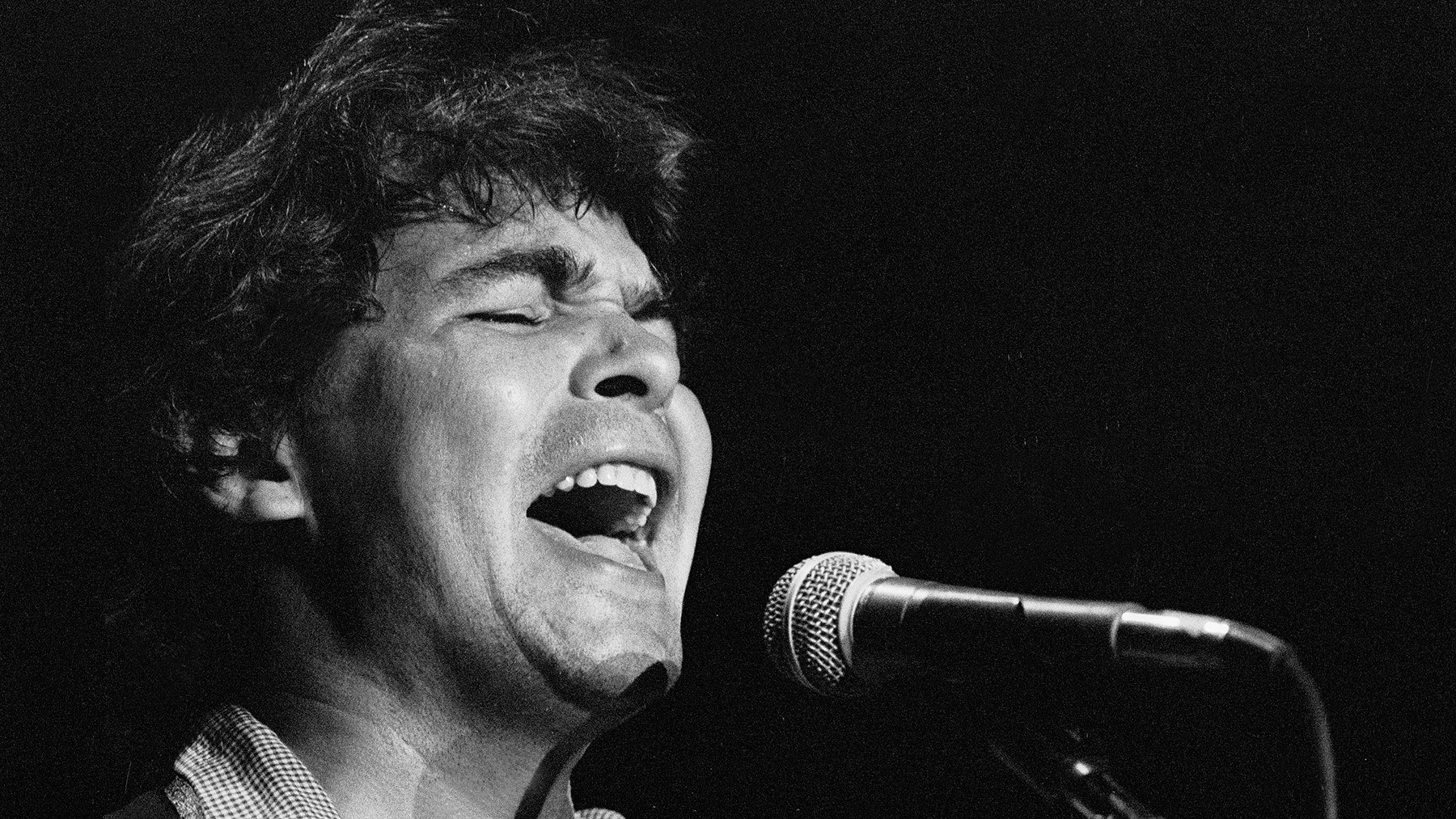 John Prine playing guitar on stage, his energetic performance style complementing the upbeat nature of "Fish and Whistle".
John Prine playing guitar on stage, his energetic performance style complementing the upbeat nature of "Fish and Whistle".
Image Credit: Paul Natkin/Getty Images
“Fish and Whistle,” an upbeat stomper from Bruised Orange, strings together vignettes from various periods of Prine’s life – his first job at a drive-in, his army days – unified by a chorus emphasizing forgiveness. This catchy and relatable John Prine hit is peppered with humorous, real-life observations. “On my very first job I said ‘thank-you’ and ‘please’/They made me scrub a parking lot down on my knees/Then I got fired for being scared of bees/And they only give me fifty cents an hour.” Prine later confessed his genuine fear of bees, adding a layer of personal truth to the song’s whimsical storytelling. Its lightheartedness and relatable anxieties make “Fish and Whistle” a beloved and enduring John Prine hit.
“It’s Happening to You” (1980)
Image Credit: George Rose/Getty Images
“It’s Happening to You” isn’t a grand literary work, but a compact, effortlessly charming tune that encapsulates the lifecycle of a relationship, from first kiss to final goodbye. This unassuming yet insightful John Prine hit blends matter-of-fact honesty with genuine wonder at the often-clichéd rituals of love. “You know what they say/They pledge their love forever/Then they add a day,” he sings, adding his own wry observation to the rich tradition of pop songwriting about love and relationships. Rachel Peer’s subtle harmony vocals add a bittersweet beauty to the song, enhancing its gentle reflection on the fleeting nature of romance and solidifying its place as a quiet gem among John Prine hits.
“Unwed Fathers” (1984)
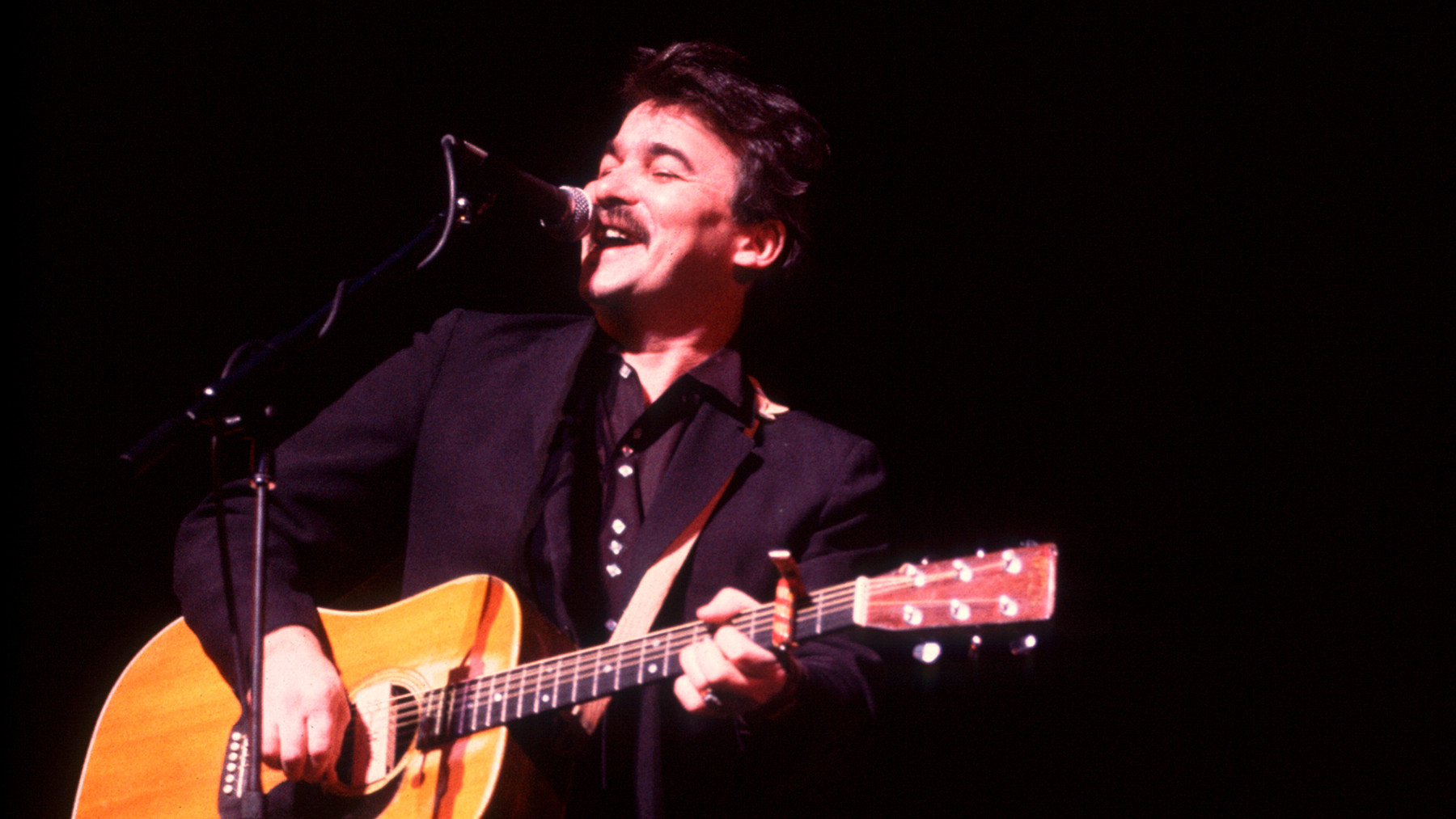 John Prine on stage at the Aire Crown Theater in Chicago, Illinois in 1985, during the period of "Unwed Fathers".
John Prine on stage at the Aire Crown Theater in Chicago, Illinois in 1985, during the period of "Unwed Fathers".
Image Credit: Paul Natkin/Getty Images
“Unwed Fathers,” a poignant commentary on the double standards faced by single pregnant mothers, was co-written by Prine with Nashville songwriting legend Bobby Braddock. “I wrote down 15 titles, including one called ‘Children Having Children’ and ‘Unwed Fathers’” Prine recalled. “I was reading the list off to him, and all the lights went on with those two. We kind of combined them and went right into it.” This socially conscious John Prine hit, later recorded by Tammy Wynette and Johnny Cash, became a highlight of his Aimless Love album. Prine initially performed it as a duet with then-wife Rachel Peer and subsequently as a duet standard with artists like Margo Price, Iris DeMent, and Amanda Shires, highlighting its enduring message and collaborative appeal as one of the significant John Prine hits.
“Let’s Talk Dirty in Hawaiian” (1986)
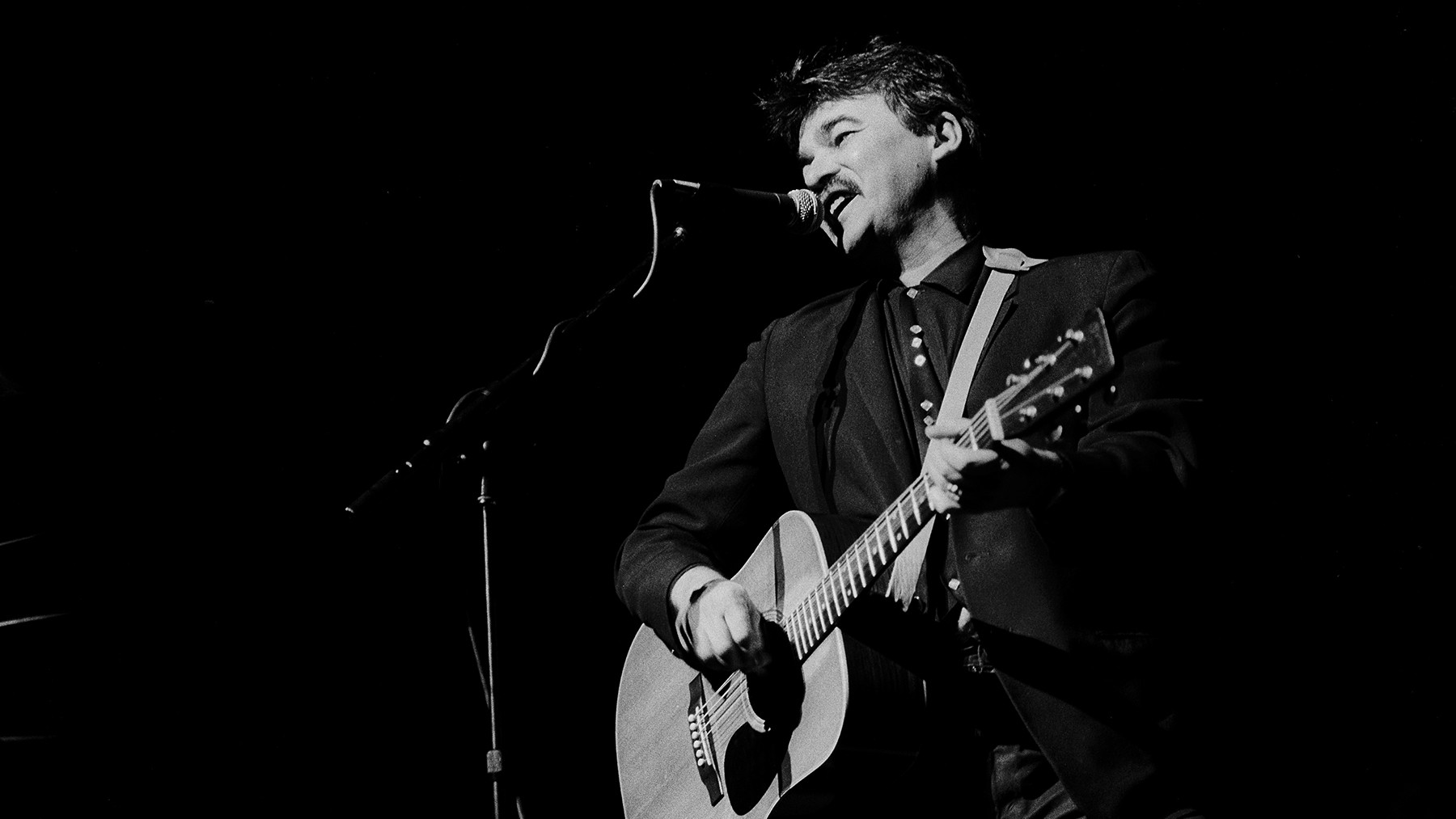 John Prine in a playful pose, reflecting the lighthearted and humorous nature of "Let's Talk Dirty in Hawaiian".
John Prine in a playful pose, reflecting the lighthearted and humorous nature of "Let's Talk Dirty in Hawaiian".
Image Credit: Paul Natkin/Getty Images
Penned on a Nashville hotel patio and released on German Afternoons, “Let’s Talk Dirty in Hawaiian” is both a quintessential vacation song and a playful, suggestive love song. This uniquely fun John Prine hit is pure wordplay and joyful absurdity. “It’s a ukulele Honolulu sunset,” Prine sings, accompanied by geographically appropriate instrumentation, “Listen to the grass skirts sway/Drinking rum from a pineapple/Out on Honolulu Bay/The steel guitars all playing/ While she’s talking with her hands/ Gimme gimme oka doka make a wish and wanta polka/Words I understand, hey!” He described it as “the kind of song that keeps you out of the shrink,” underscoring its purely escapist and comedic nature, making it a standout among John Prine hits.
“Speed at the Sound of Loneliness” (1986)
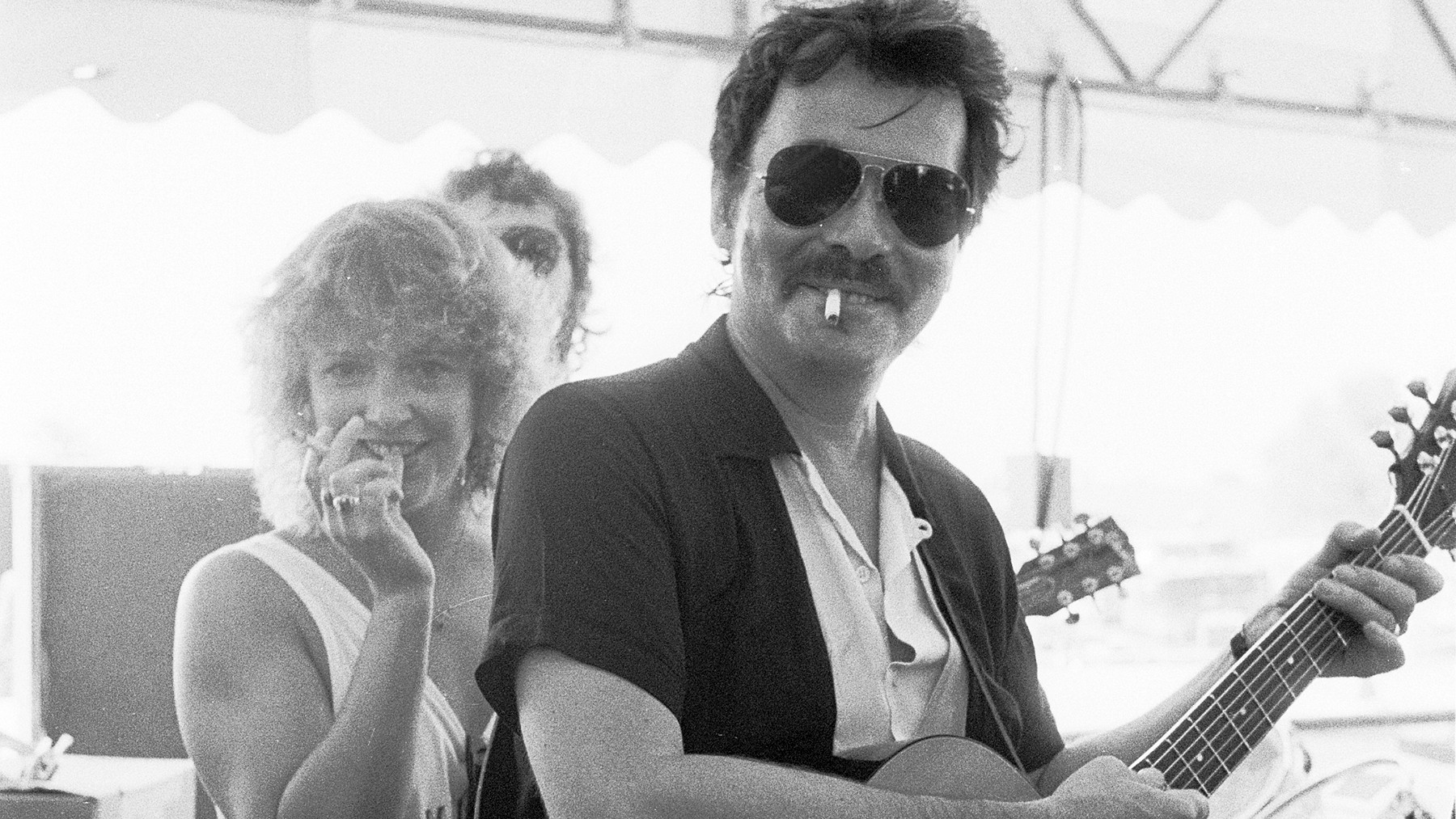 John Prine performing at Farm Aid 2 in Austin, Texas in 1986, a period associated with "Speed at the Sound of Loneliness".
John Prine performing at Farm Aid 2 in Austin, Texas in 1986, a period associated with "Speed at the Sound of Loneliness".
Image Credit: Paul Natkin/Getty Images
“Speed at the Sound of Loneliness,” a ballad born from a painful breakup, showcases John Prine at his most romantically vulnerable. “It was a song about a break up,” he explained in 2016. “I had a picture in my mind of one of the astronauts of the 1950s with his face all contorted by G-force. I was thinking of somebody’s heart being pulled apart by G-force like that.” While “Angel From Montgomery” gained fame through Bonnie Raitt’s rendition, “Speed of the Sound of Loneliness” became associated with Nanci Griffith, who included a duet with Prine on her album Other Voices, Other Rooms. However, the simple three-chord devastation at the heart of this tale of emotional distance is pure Prine, resulting in what is arguably his most heartbreaking lyric: “You come home straight/And you come curly,” he sang. “Sometimes you don’t come home at all.” This song’s raw emotionality solidifies its place as a powerful John Prine hit.
“The Sins of Memphisto” (1991)
Image Credit: Dave Peabody/Redferns/Getty Images
“The Sins of Memphisto,” written last-minute for The Missing Years, is a literary tour-de-force packed with classic Prine rhymes, absurdist imagery, and keen observations of everyday life. This beautifully crafted John Prine hit meditates on love, aging, youthful freedom, and lost innocence. Its cast of characters includes Adam and Eve, Lucile Ball and Ricky Ricardo, Esmeralda and the Hunchback of Notre Dame, a restless kid on a bike, and a Grandpa pondering life’s big questions. Delivered with a gentle, late-afternoon sweetness, the song’s poignant reflections on life’s complexities go down smoothly, like a sip of Orange Crush. Its lyrical richness and thoughtful themes make “The Sins of Memphisto” a standout John Prine hit.
“All the Best” (1991)
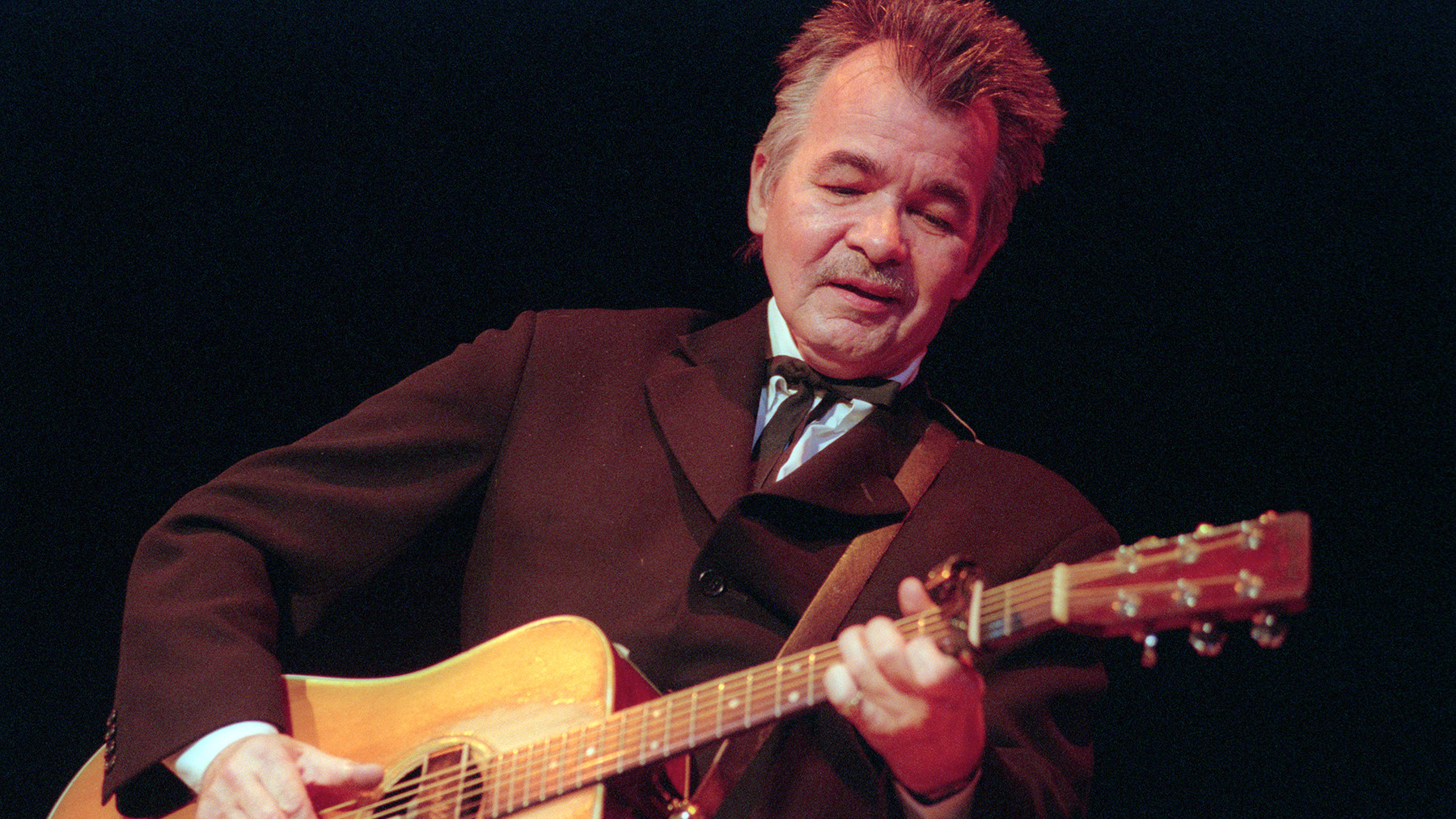 John Prine performing at Town Hall in 1999, a period where "All the Best" had become a fan favorite.
John Prine performing at Town Hall in 1999, a period where "All the Best" had become a fan favorite.
Image Credit: Hiroyuki Ito/Getty Images
In a remarkable display of emotional generosity, John Prine transformed his divorce from second wife Rachel Peer into “All the Best,” a song about heartbreak and healing through compassion. This big-hearted John Prine hit culminates in a devastatingly simple distillation of how relationships can drift apart: “Your heart gets bored with your mind/And it changes you.” “All the Best” anchored The Missing Years, an album marking Prine’s triumphant comeback and a period of new love with his future third wife, Fiona. “Having recently acquired my second divorce,” Prine joked before introducing “All the Best” in 1990, “about a month later the song truck pulled up and dumped a bunch of great songs on my lawn.” The song is a testament to Prine’s capacity for empathy and finding beauty in heartbreak, making it a deeply moving John Prine hit.
“Jesus the Missing Years” (1991)
Image Credit: David Redfern/Redferns/Getty Images
“Jesus the Missing Years” tackles the 18-year gap in Jesus’s life, age 12 to 29, with a surreal, seven-minute Ramblin’ Jack Elliott-esque ballad. This wildly imaginative John Prine hit fills in the blanks with outlandish scenarios: Jesus traveling to France and Spain, encountering the police, embracing long hair, watching Rebel Without a Cause, and even inventing Santa Claus. He also “discovered the Beatles, recorded with the Stones, and once even opened up a three-way package in Southern California for old George Jones.” The narrative takes a darker turn as Jesus realizes his destiny: “a human corkscrew and all my wine is blood. They’re gonna kill me Mama, they don’t like me bud.” This song, admired by Bob Dylan, is a staggering piece of poetic storytelling, showcasing Prine’s unmatched lyrical creativity and solidifying its place as a unique and unforgettable John Prine hit.
“Lake Marie” (1995)
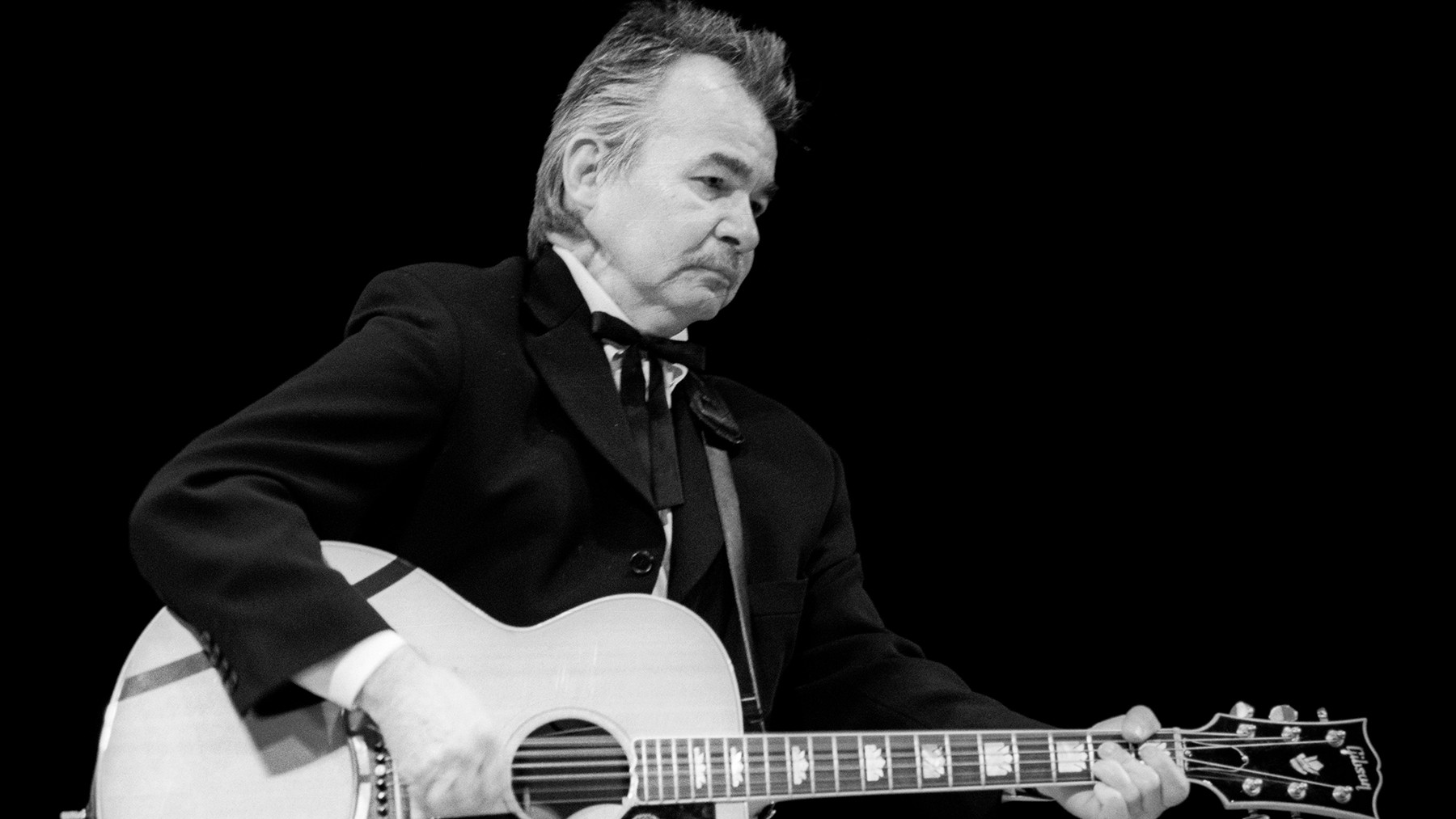 John Prine performing at Town Hall in 1999, during the era of his album "Lost Dogs and Mixed Blessings" featuring "Lake Marie".
John Prine performing at Town Hall in 1999, during the era of his album "Lost Dogs and Mixed Blessings" featuring "Lake Marie".
Image Credit: Hiroyuki Ito/Getty Images
Bob Dylan famously described Prine’s work as “pure Proustian existentialism… Midwestern mind-trips to the nth degree.” “Lake Marie,” Dylan’s favorite John Prine hit, perfectly exemplifies this. It intertwines three seemingly disparate stories – the naming of two lakes on the Illinois-Wisconsin border, a failing marriage, and a gruesome murder – into a modern folk tale with a singalong chorus. Prine researched the lakes (actually Lake Mary, not “Marie”) and drew inspiration for the murders from childhood TV news footage. Somehow, it all coalesces, blending light and dark, shadows and “peaceful waters.” The song also features a classic Prine laugh line: “Many years later we found ourselves in Canada/Trying to save our marriage and perhaps catch a few fish … whatever came first.” Its masterful storytelling and unique blend of tones make “Lake Marie” a quintessential John Prine hit.
“In Spite of Ourselves” (1999)
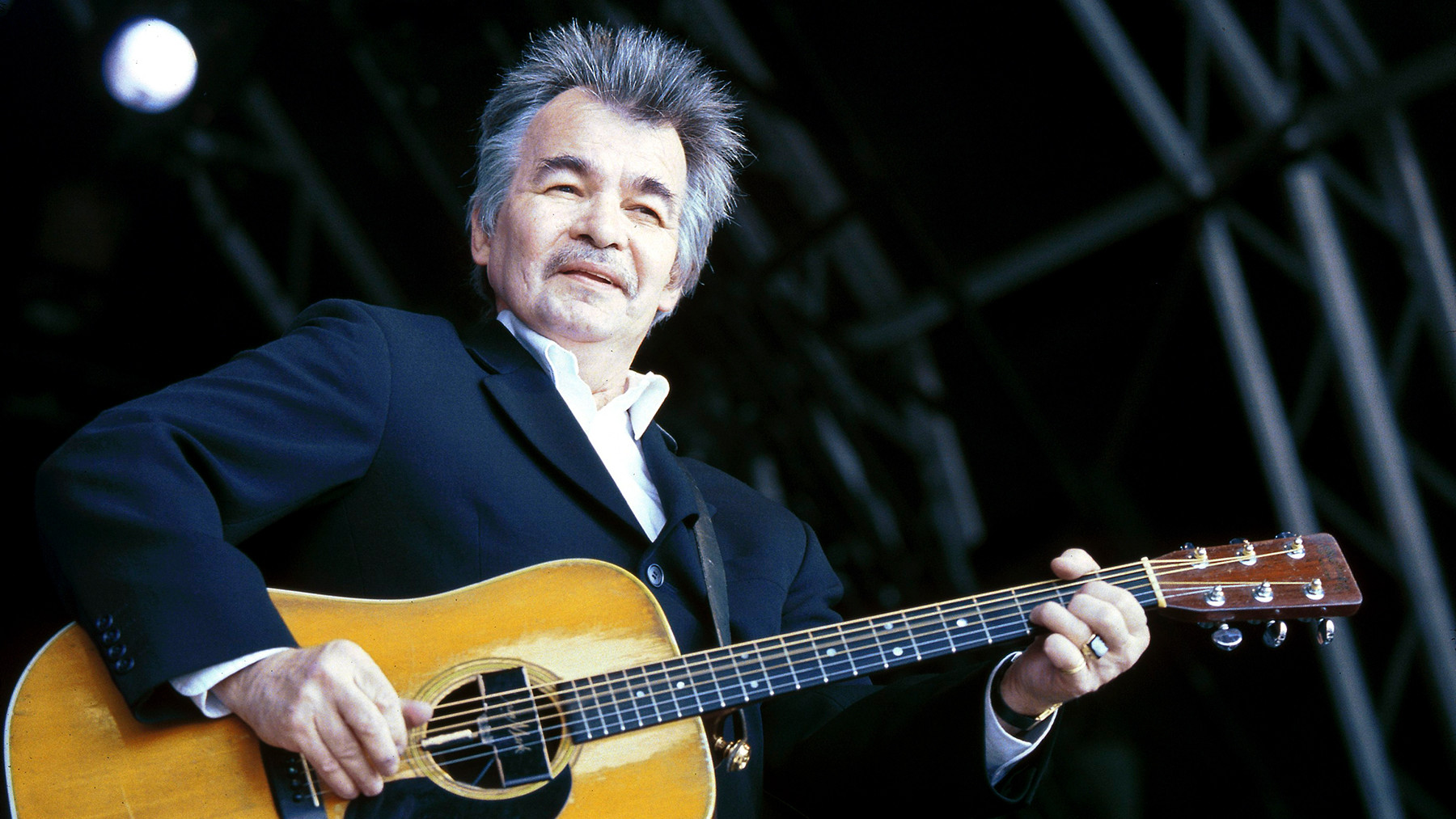 John Prine and Iris DeMent performing "In Spite of Ourselves", highlighting the duet's charm and popularity.
John Prine and Iris DeMent performing "In Spite of Ourselves", highlighting the duet's charm and popularity.
Image Credit: Andrew Lepley/Redferns/Getty Images
“In Spite of Ourselves,” a duet with Iris DeMent, is a he-said, she-said portrait of a long-term relationship, written with Prine’s signature warmth, detail, and humor. This charming and witty John Prine hit explores the endearing imperfections of love. He sings about her dislike of runny eggs and money, and her “corny” joke assessment (rhyming it with “convict movies make her horny”); she calls out his beer-drinking and past underwear-sniffing habits. Despite their differences, their deep, accepting love shines through. Originally written for the film Daddy and Them, based loosely on two characters, “In Spite of Ourselves” became a popular wedding song, celebrating warts-and-all love and becoming one of the most beloved and frequently played John Prine hits.
“Some Humans Ain’t Human” (2005)
 John Prine performing with an acoustic guitar, his kind demeanor contrasting with the sharp social commentary in "Some Humans Ain't Human".
John Prine performing with an acoustic guitar, his kind demeanor contrasting with the sharp social commentary in "Some Humans Ain't Human".
Image Credit: Harry Scott/Redferns/Getty Images
As an artist known for kindness and humanity, Prine brought a unique, dispirited disbelief to “Some Humans Ain’t Human,” a mordantly funny critique of Republican ideology during the Bush years. Released at the height of the Iraq War, this politically charged John Prine hit pulls no punches. “You open their hearts and here’s what you’ll find,” he sings over a gentle melody. “A few frozen pizzas/Some ice cubes with hair/A broken Popsicle/You don’t want to go there.” Despite its political anger, the song remains beautiful, showcasing Prine’s ability to find artistry even in ugliness. “During Vietnam, when you saw people on the street, you knew which side they were on,” Prine explained. “But you don’t know anymore. It just got to the point where if you weren’t saying anything then people were taking it that you supported him, so I thought ‘Jeez, if I get hit by a bus I would sure like the world to know that I was not a Republican.’” Its blend of gentle melody and sharp social commentary makes it a powerful and thought-provoking John Prine hit.
“Long Monday” (2005)
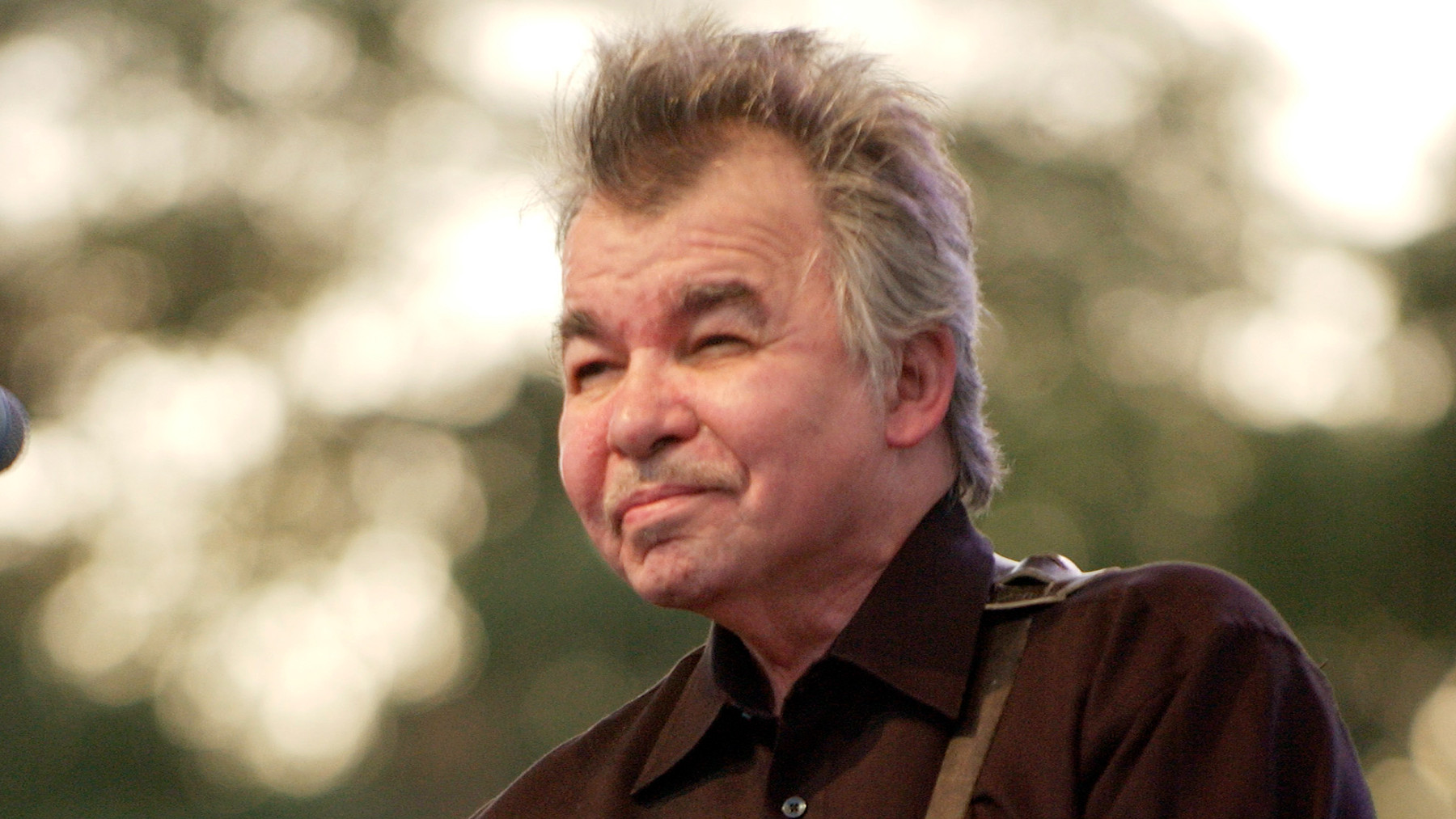 John Prine in a live performance, his seasoned stage presence reflecting the reflective mood of "Long Monday".
John Prine in a live performance, his seasoned stage presence reflecting the reflective mood of "Long Monday".
Image Credit: Tim Mosenfelder/Getty Images
Prine’s voice carried a distinct nostalgia and melancholy on Fair & Square, his first album post-cancer. “Long Monday,” a standout ballad co-written with Keith Sykes, is a poignant reflection on past joys tinged with a hint of impending darkness. This beautifully melancholic John Prine hit captures a sense of bittersweet remembrance. “Radio’s on/Windows rolled up/And my mind’s rolled down,” Prine sings. The lyrics address a departing lover, but given Prine’s own life as a touring musician who missed his family, the song resonates with a deeper, personal longing. Its gentle melody and introspective lyrics make “Long Monday” a quietly powerful and emotionally resonant John Prine hit.
“Summer’s End” (2018)
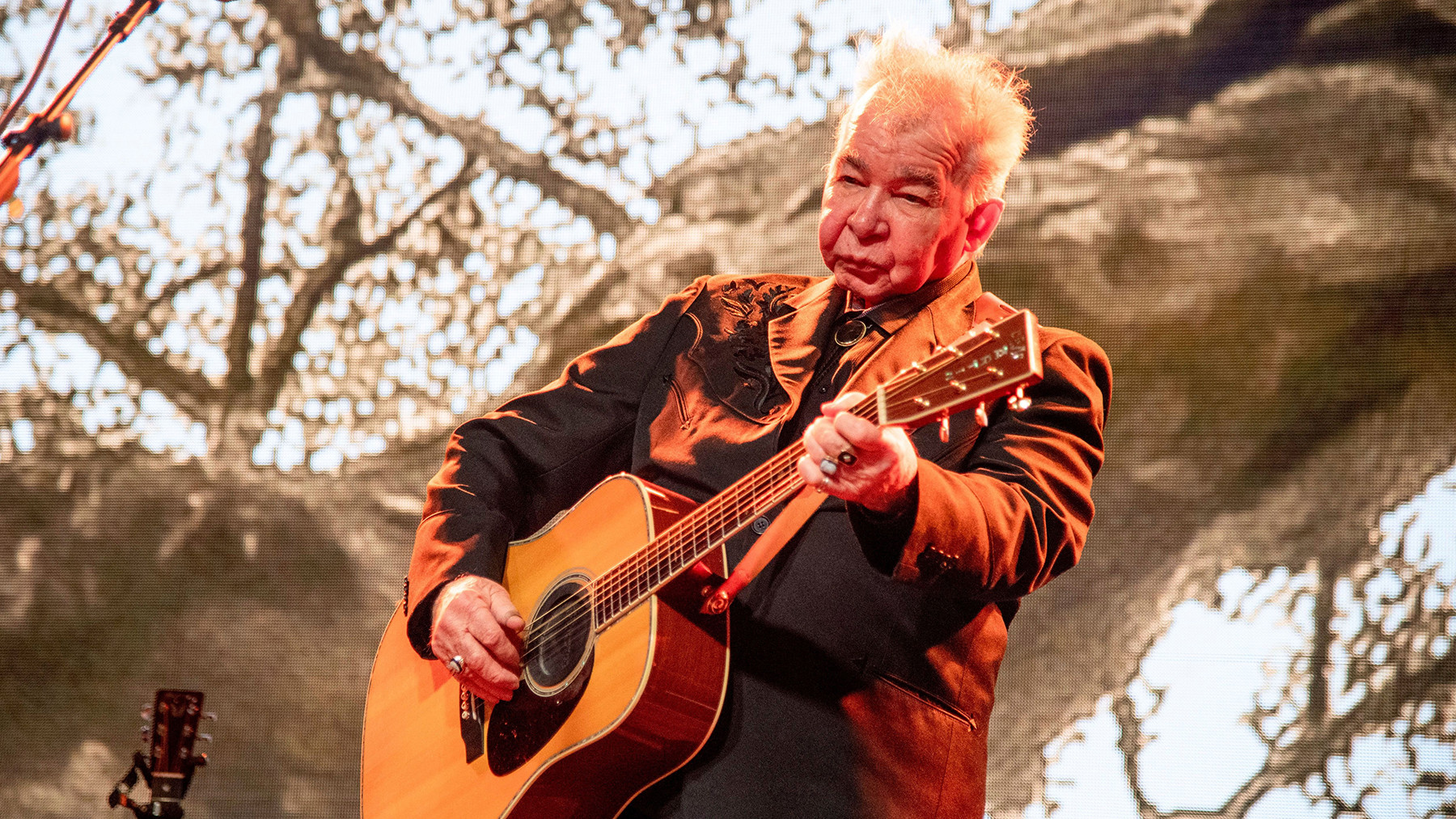 John Prine at the Bonnaroo Music and Arts Festival in 2019, a performance occurring after the release of "Summer's End".
John Prine at the Bonnaroo Music and Arts Festival in 2019, a performance occurring after the release of "Summer's End".
Image Credit: Amy Harris/Invision/AP/Shutterstock
“Summer’s End,” the emotional core of The Tree of Forgiveness, is an ode to late-life companionship and approaching mortality. This deeply moving and poignant John Prine hit opens with the simple image of swimsuits drying on a clothesline, transforming the end of summer into a metaphor for life’s final season. “Well, I don’t know, but I can see it’s snowing,” Prine sings, drawing out the last word to emphasize its deeper meaning. His wife Fiona shared that the song evokes their own relationship, “OK, we have had two seasons together, and we are going into the third season.’” Known for songs that blend laughter and tears, “Summer’s End” leans purely into the latter, Brandi Carlile’s haunting harmonies amplifying the yearning in the “come on home” chorus. “Summer’s End” is a deeply emotional and beautifully crafted meditation on love and loss, rightfully earning its place among essential John Prine hits.
“When I Get to Heaven” (2018)
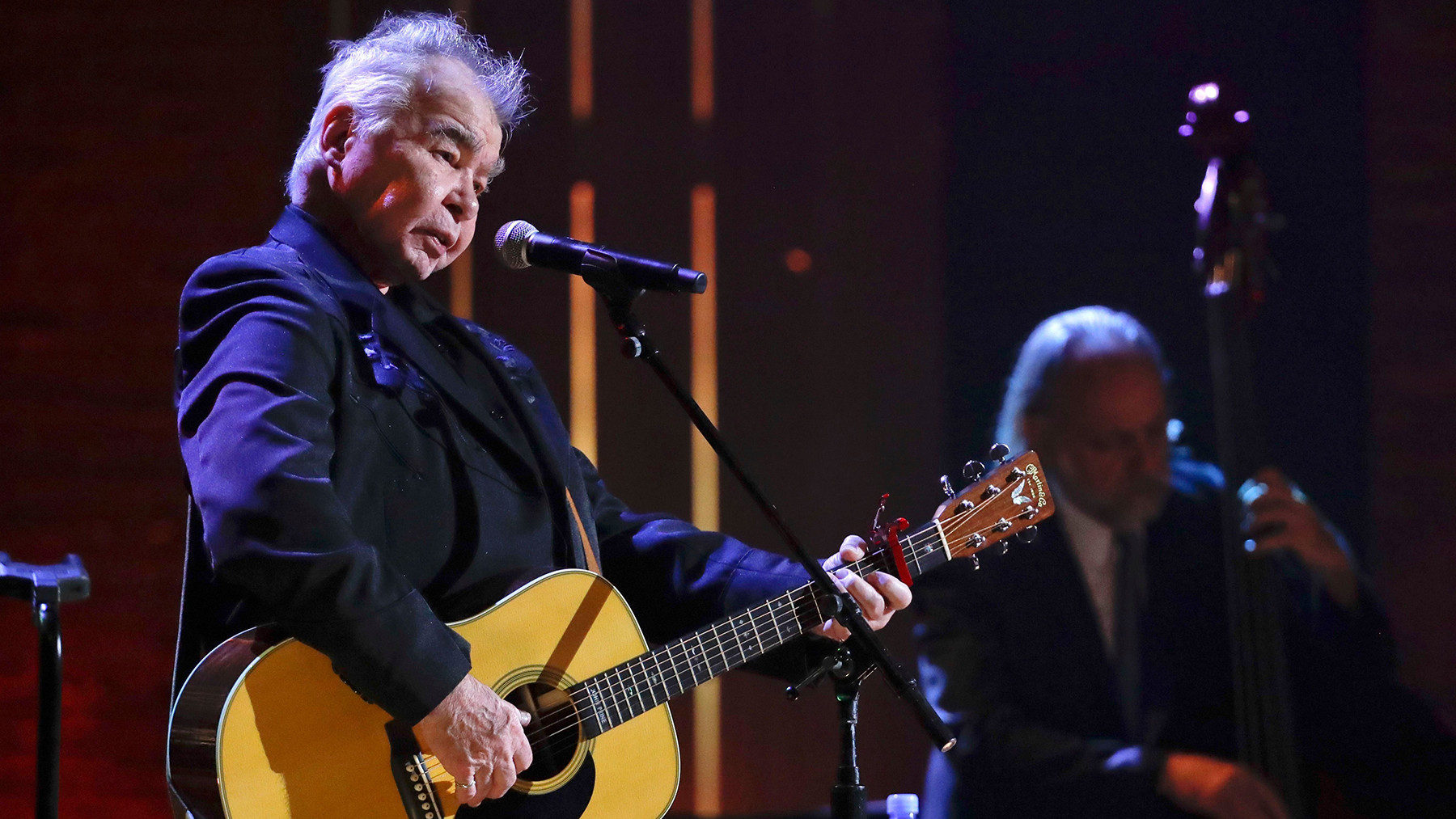 John Prine performing live, his joyful stage presence reflecting the uplifting spirit of "When I Get to Heaven".
John Prine performing live, his joyful stage presence reflecting the uplifting spirit of "When I Get to Heaven".
Image Credit: Mark Zaleski/AP/Shutterstock
John Prine couldn’t have written a more fitting epitaph than “When I Get to Heaven,” the final track on his final album. This uniquely joyful and humorous John Prine hit outlines his plans for the afterlife in spoken-word verses inspired by Hank Williams’ alter-ego Luke the Drifter. “When I get to heaven/I’m gonna shake God’s hand/Thank him for more blessings/Than one man can stand,” Prine sings, listing his blessings – his parents, departed loved ones, even his critics. He envisions opening a nightclub called the Tree of Forgiveness in heaven, promising to make “handsome Johnnys” (vodka and ginger ale) and “smoke a cigarette that’s nine miles long.” While mortality was a recurring theme in his work, Prine faced his own with characteristic dark humor and lyrical precision: “When I get to heaven, I’m gonna take that wristwatch off my arm,” he sang. “What are you gonna do with time/After you’ve bought the farm?” “When I Get to Heaven” is a perfect blend of humor and reflection on life and death, a truly fitting and uplifting final statement and a poignant addition to the list of John Prine hits.
These 25 songs represent just a glimpse into the vast and rich catalog of John Prine hits. His ability to weave humor and heartbreak, the mundane and the profound, into deceptively simple songs cemented his legacy as a songwriting icon. From poignant ballads to playful tunes, Prine’s music continues to resonate with listeners, offering comfort, laughter, and a profound connection to the human experience. His hits are not just songs; they are stories, observations, and reflections that have earned him a permanent place in the hearts of music lovers worldwide.

